Safavids in Venetian and European Sources
Descrizione
The emergence of the Safavid Empire in the early sixteenth century marked a significant change in the geopolitics of the Middle East.
This momentous change coincided with the widening of Ottoman expansion eastward and the exploration by European powers, especially by Venice, of the possibilities of forming alliances against the Ottomans with the involvement of the Safavids.
Thus, Ottoman threat and commercial interests contributed to the emergence and development of diplomatic, cultural, and trade relations between the Republic of Venice and the Safavid Empire, which lasted until the end of the seventeenth century. Drawing on the documents from the Venetian State Archives and other contemporary sources, this book focuses mainly on some aspects of Safavid diplomacy, including the language of the Safavid polity, the role of European subjects as interpreters for the shahs, material and visual characteristics of Safavid diplomatic letters to Venice, the attitude of the Safavids towards resident diplomacy, the reception of the European envoys in the Safavid court and Europeans’ perception of Safavid diplomatic practices, as well as the characteristics of the Safavid embassies to Venice.
We have tried to explain the role of Turkish as a language of diplomacy and communication in Safavid-Venetian encounters.
We have also attempted to explore briefly how the Venetians distinguished Safavid subjects according to their ethno-linguistic affiliations. Finally, we examine the Ottoman factor in Safavid-Venetian relations in order to establish to what extent, if any, the Ottomans had an impact on the overall character of Safavid-Venetian relations.
Editore:
Edizioni Ca’ Foscari - Venice University PressData:
2022Formato
application/pdf (7.69 MB)
Soggetto
• Safavid diplomacy • Safavid envoys • Venice • Diplomatic gift-giving • Safavid Empire • <p>Safavid Empire • Safavid-Venetian relations • Early modern diplomacy • Ottoman-Venetian relations










 è un servizio del
è un servizio del